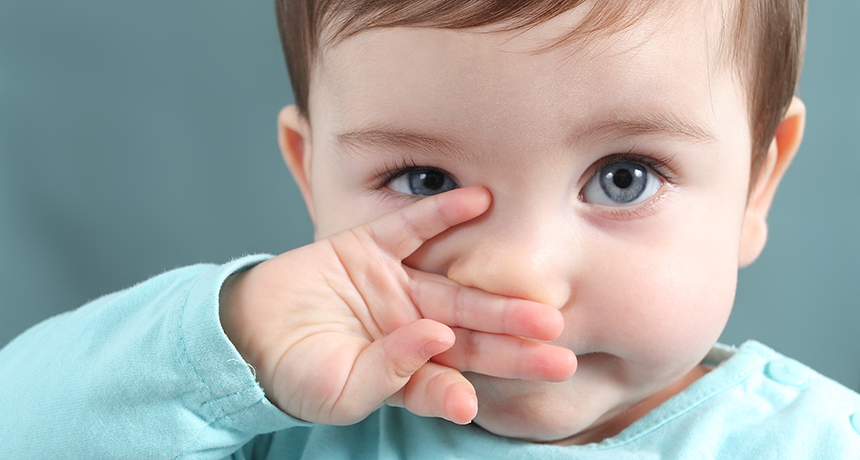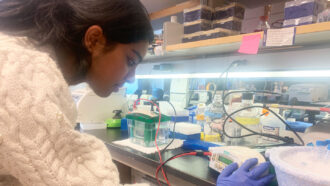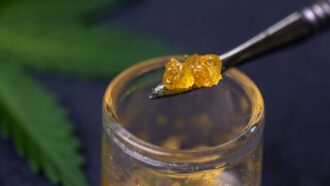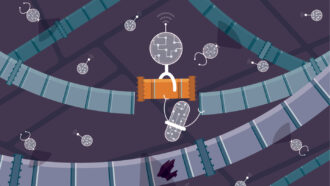Explainer: The benefits of phlegm, mucus and snot
We cough it up and spit it out, but mucus deserves our appreciation

Mucus, snot and phlegm are made from the same thing and serve the same purpose. They’re a first line of defense against germs.
AntonioGuillem/iStockphoto
Mucus. You hack it up. Spit it out. Blow it into tissues and throw it away. But while it’s gross once it leaves the body, mucus, phlegm and snot play important roles inside us.
Part of the immune system, the role of this sticky goop is to help, explains Brian Button. He studies biophysics — the physics of living things — at the University of North Carolina in Chapel Hill. Mucus covers every part of our bodies that is exposed to the air but unprotected by skin. That includes our noses, mouths, lungs, reproductive areas, eyes and rectum. “All are lined with mucus to trap and clear the stuff we are exposed to,” he notes.
The sticky substance is made of long molecules called mucins (MEW-sins). Mixed with water, mucins link up to form a gluey gel. That gel traps bacteria, viruses, dirt and dust in its sticky embrace. In fact, mucus is the lung’s first line of defense against germs, which explains why the lung makes so much of it. Our lungs produce about 100 milliliters of mucus per day, enough to fill about a quarter of a 12-ounce soda can.
Lung mucus is known as phlegm. It’s thicker and stickier than the mucus in our noses or reproductive areas. But all of our mucus is made from mucins, which Button says come in “different flavors.” Button says. Those flavors are isoforms, proteins that get instructions from the same genes to form but end up with slightly different sequences. Various isoforms will produce mucus that can be thicker or thinner.
“They say doctors pick their specialties by what they find least gross,” notes Stephanie Christenson. “I can’t take poop, but my doctor friends [in other specialties] hate what I do because they think mucus is gross.” Christenson is a pulmonologist — someone who studies the lungs — at the University of California, San Francisco.
Mucus, she explains, is natural. “Lungs are exposed to the environment,” she notes. Each inhaled breath can bring in bacteria, viruses and more. The body needs a way to expel them and has turned to mucus. That’s why, she argues, “Mucus is our friend.”
To get invaders out of the lungs, phlegm has to keep flowing. The cells that line the lungs are covered in cilia — tiny hairlike structures. They wave back and forth, shoving the mucus up and out of our airways. When it reaches the throat, we will hack it up. Then, most of the time, we swallow it without a second thought. The stomach will later break down whatever germs it picked up along the way. Delicious!
After a cold or flu, “our bodies produce more mucus to trap and clear the [germs],” Button explains. If there’s too much phlegm in the lungs for the cilia to wave it all away, we cough. The rushing air rips the mucus off the lungs so we can hack it up.
In other areas of the body, mucus plays other roles. It keeps the surface of our eyes moist. Snot coats our mouths and noses to keep us safe from germs and soothe our irritated membranes. In the rectum, mucus helps to determine how quickly mammals expel their poop. And in a woman’s reproductive tract, mucus can control whether a sperm cell gets to an egg.
No matter how disgusting or gloppy it may seem, mucus is with us every moment of our lives. “If you think about what it’s doing,” Christenson says. “It’s a little bit less gross.”







